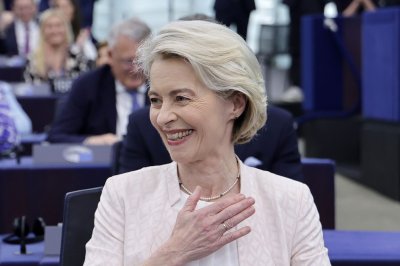EU’s green demands are jamming trade talks with India
Published on 25/09/2025 – 14:39 GMT+2
•Updated
15:05

ADVERTISEMENT
Negotiations over the sustainability chapter of the trade agreement with India are proving “challenging” the Commission’s chief negotiator Christophe Kiener told a meeting of the European Parliament’s trade committee on Thursday.
“We will need to adjust the approach we usually take on trade and sustainable development to make sure this is something India can live with,” said Kiener, adding: “Not having a chapter on trade and sustainability is not an option, but we must also make sure that this chapter cannot be an empty shell.”
The EU and India aim to conclude negotiations on a trade agreement by the end of the year. On 12 September, EU Trade Commissioner Maroš Šefčovič and Agriculture Commissioner Christophe Hansen travelled to New Delhi for a new round of talks. However, no breakthrough was achieved.
One of the main sticking points is the dispute settlement mechanism the EU seeks to include in the deal to ensure India complies with environmental standards.
“The notion that there would be a dispute settlement, let alone sanctions applying to those commitments, the idea that the commitments would be legally binding, that civil society would be involved in the management of the agreement from that perspective, but also that those commitments would apply at the sub-federal level — these are elements that are very difficult for India,” Kiener told MEPs.
India ‘not like New Zealand’
Since its last mandate, the Commission pushes for inclusion of environmental provisions in its trade agreements, including mechanisms to oversee their implementation and enforce compliance.
This same chapter proved contentious during the EU’s talks with the Mercosur countries — Argentina, Brazil, Paraguay, and Uruguay — until a deal was finally reached in December 2024.
The Mercosur agreement includes a dispute settlement mechanism involving an external review by independent experts and participation from civil society. It also identifies adherence to the Paris Agreement — the legally binding international climate treaty adopted in 2015 — as an “essential element” of the deal. This means the agreement can be suspended if one party seriously breaches or withdraws from the climate accord.
“We should not fall into the delusion that India is a country like New Zealand,” Kiener said, referring to the EU-New Zealand deal that entered into force in May 2024 and is considered a benchmark for integrating green standards into trade agreements.
EU green legislation, in particular the Carbon Border Adjustment Mechanism (CBAM) adopted in 2023, has raised concerns among Indian negotiators, Kiener told MEPs. CBAM introduces a levy on imports into the EU of certain carbon-intensive goods, a measure India perceives as potentially protectionist.
